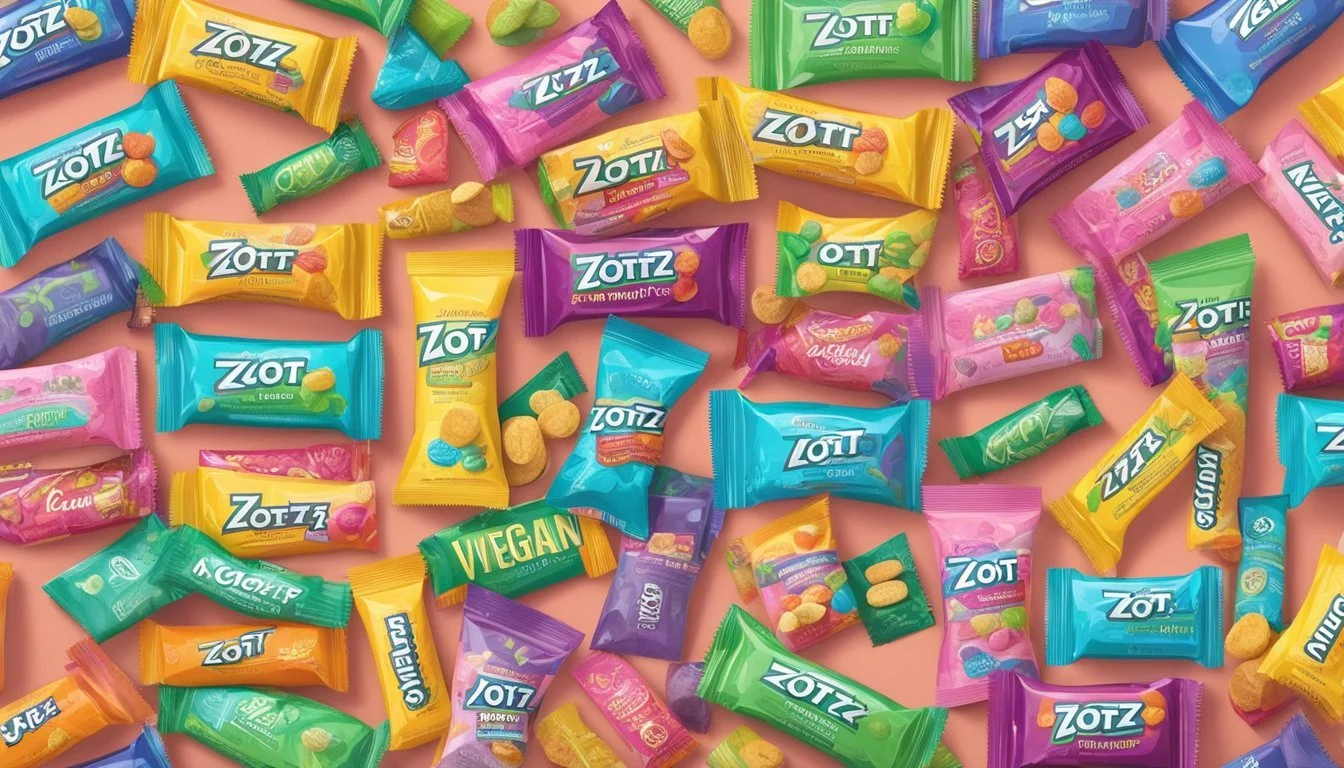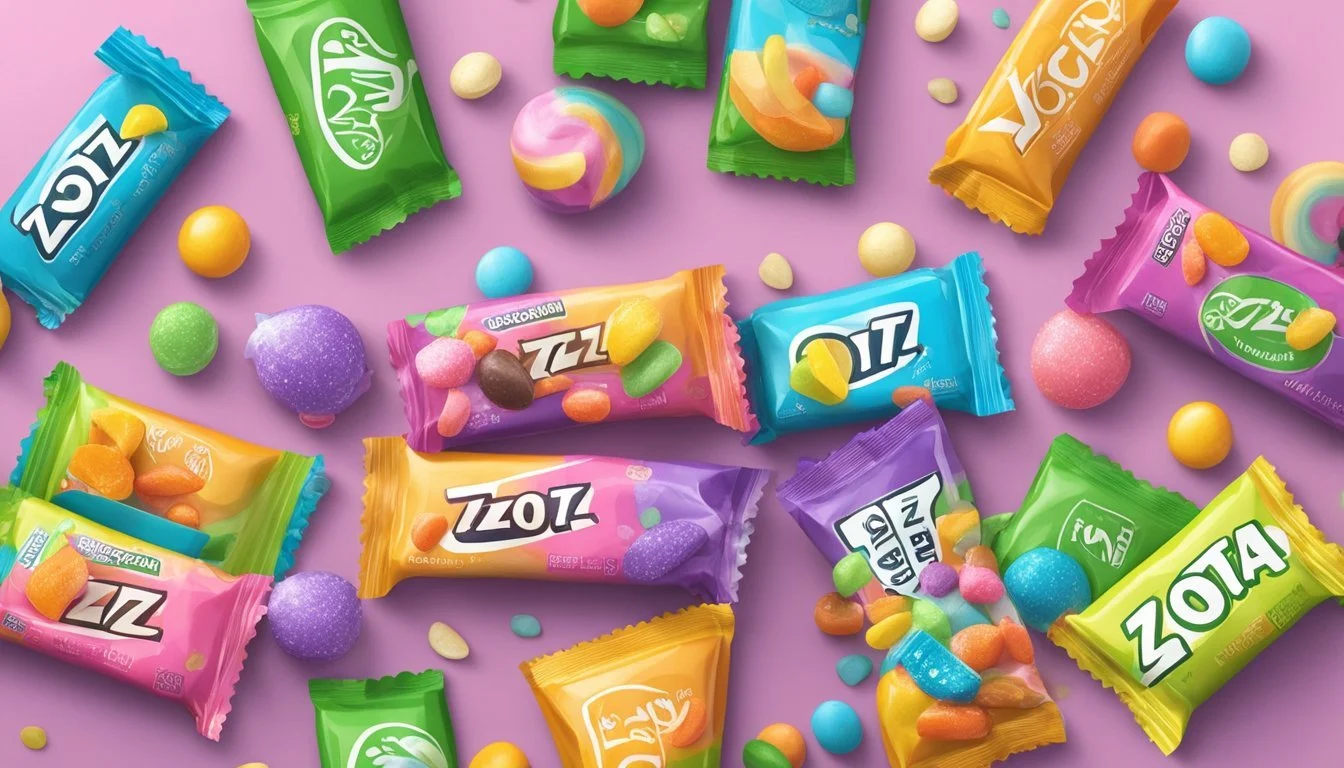Are Zotz Vegan?
Unraveling the Ingredients List
When exploring the suitability of Zotz candy for those adhering to a vegan lifestyle, it's crucial to investigate both the ingredients list and the manufacturing processes. Zotz candy is known for its distinctive fizzy sensation and comes in a variety of flavors. It is often labeled as suitable for dietary vegans, as it does not contain ingredients explicitly derived from animal sources.
However, while the primary components might align with vegan criteria, additional scrutiny is needed regarding secondary aspects like added colors and processing agents. Some vegans may have concerns over artificial colors, which are present in certain Zotz flavors, or the use of processed sugar, which, despite being a contentious topic in vegan circles, is typically used in the candy's production. Such details are critical to consider for individuals seeking to ensure their diet does not indirectly contribute to animal exploitation or impact.
It's important to remember that the definition of 'vegan' can vary among individuals, with some adopting a strict approach that avoids all products with potential connections to animal derivatives, while others interpret veganism with more flexibility. Thus, the vegan-friendliness of Zotz may ultimately depend on the personal standards set by each vegan consumer.
Understanding Veganism
Veganism is more than a diet—it is a lifestyle choice that seeks to avoid all forms of animal exploitation and cruelty. This philosophy extends to the food vegans consume, the clothes they wear, and right down to the candies they enjoy. Here’s a deeper look into what qualifies as vegan in the world of products and the common animal-derived ingredients to watch out for, especially in candy.
Defining Vegan Products
For a product to be considered vegan, it must contain no animal ingredients or by-products. In the context of the vegan lifestyle, this means food, clothing, or any other items are made entirely of plant-based or synthetic materials that do not involve animals in their production. Vegan candy, specifically, avoids any animal-derived ingredients, offering sweet treats that align with the principles of veganism.
Vegan Products Checklist:
Contains zero animal-derived components
Free from ingredients tested on animals
Involves no animal exploitation in manufacturing
Common Animal-Derived Ingredients in Candy
A variety of animal-derived ingredients are commonly found in candies, which those following a vegan diet should be aware of. Ingredients such as gelatin—derived from animal bones and skin—is often used as a gelling agent. Carmine, a red dye made from crushed insects, is used for coloring, while bone char is sometimes used in the sugar refining process.
Other ingredients to be aware of include:
Milk and milk chocolate: Derived from cows and commonly found in creamy or chocolate candies.
Honey: A sweet substance made by bees.
Casein: A milk protein used for texture.
Confectioner’s glaze: Often derived from shellac, which is secreted by lac bugs.
Vegans seek out candies that are labeled as animal-free and diligently examine ingredient lists to ensure they align with vegan principles.
The Case of Zotz Candy
When gauging the vegan status of Zotz candy, one must carefully examine its ingredients, understand which ones may be contentious among vegans, and consider the various flavors offered.
Assessing Zotz Ingredients
The core composition of Zotz includes sugar, a mixture of malic and tartaric acid, combined with sodium bicarbonate. By this account, the ingredients mentioned in Zotz do not contain animal derivatives, which suits the needs of dietary vegans.
Controversial Ingredients to Watch Out For
While the primary constituents of Zotz align with vegan standards, it is critical to scrutinize potential controversial ingredients. Vegans often look out for gelatin, carmine, shellac, and bone char processed sugar, none of which are stated on the Zotz label. However, it is worth noting that the concern regarding processed sugar being filtered with bone char should be considered, although the brand does not explicitly confirm such use in their product. Additionally, while artificial colors present in some candies are not derived from animals, the issue of animal testing is a concern for ethical vegans. Concerns about cross-contamination during manufacturing may also exist, although this is typically more relevant for individuals with allergies.
Zotz Flavors and Varieties
Zotz candy is known for its fizzy, sour center and offers a range of flavors. The vegan-friendly status is maintained across all flavors of Zotz, which include but may not be limited to:
Blue Raspberry
Cherry
Watermelon
Orange
Grape
Lemon
Each flavor brings the signature effervescent surprise that Zotz fans anticipate, encased in a hard candy exterior.
Vegan-Friendly Candy Alternatives
For those seeking to indulge in sweets without animal byproducts, the market provides an array of vegan-friendly candy alternatives. These products ensure that the joy of a sweet treat can be enjoyed within the framework of a vegan diet.
Popular Vegan Candy Brands
Numerous brands specialize in candy that adheres to vegan standards, ensuring that no animal-derived ingredients are used. Some highly regarded vegan candy brands include:
Sour Patch Kids: A favorite for those who prefer a tangy kick.
Skittles: Recently reformulated to be gelatin-free.
Swedish Fish: Known for their distinct flavor and texture, devoid of animal products.
Twizzlers: A classic licorice treat suitable for vegans.
Airheads: These chewy taffies come in a variety of flavors.
Dum Dums: Small and satisfying lollipops.
UNREAL Snacks: Offers vegan versions of popular candies like peanut butter cups.
Ingredient Substitutes in Vegan Candies
Vegan candies often replace conventional ingredients with plant-based substitutes to maintain flavor while adhering to vegan criteria:
Malic Acid: Used instead of gelatin for sourness.
Tartaric Acid and Sodium Bicarbonate: Create fizzy effects without using animal byproducts.
Corn Syrup and Maltose: Serve as sweeteners found in many vegan candy options.
Vegan Chocolate: Crafted without dairy, using ingredients like rice or almond milk.
Homemade Vegan Candy Solutions
One can also prepare vegan candies at home to have complete control over their sweet treats. Here are simple suggestions for homemade candies:
Caramels: Using coconut milk and vegan butter as substitutes.
Peanut Butter Cups: Crafted with vegan chocolate and natural peanut butter.
Cookies: Baking with almond or soy milk and vegan chocolate chips.
Label Reading and Certification
When assessing whether Zotz or any other products are vegan, consumers should pay close attention to certifications and specific ingredient claims. Misinterpretation of labels can lead to the inadvertent consumption of animal-derived ingredients.
Identifying Vegan Certifications
Consumers should look for official vegan certifications on packaging to easily identify vegan products. These certifications are provided by reputable organizations, such as PETA (People for the Ethical Treatment of Animals), and ensure the product meets strict vegan standards. The presence of a certified vegan label serves as a reliable indicator that the product does not contain animal-derived ingredients including natural flavors, artificial flavors, and coloring that have non-vegan origins.
Misleading Ingredients and Label Claims
Despite certifications, some products may contain misleading ingredients or label claims. For instance, a product labeled with "natural flavors" might still derive these flavors from animal sources. Similarly, "artificial flavors" and colorings may be tested on animals, which some vegans might choose to avoid. It's crucial to examine the ingredients list carefully, beyond just the front-of-package claims.
A Holistic Approach to Vegan Confectionery
Exploring vegan candy such as Zotz involves examining both health impacts and broader environmental and ethical considerations. With a focus on ingredients and their sourcing, this section delves into what it truly means for a candy to be vegan beyond the absence of animal-derived components.
Health Considerations of Vegan Candy
Vegan candies, including Zotz, typically replace animal-derived ingredients with plant-based alternatives. However, it's essential to consider other health-related components:
Sugar: Often derived from plants, sugar is a key ingredient in candy. Yet, some sugar is processed using bone char, a product of animal bones, which poses a concern for strict vegans. Conversely, unrefined sugars are considered more vegan-friendly.
Protein and Fiber: While not primary concerns in candy, these nutrients do play a role in the broader vegan diet. Alternative ingredients in vegan candy occasionally provide marginal benefits, such as fiber in fruit-derived pectin.
Artificial Colors: Many confections, including Zotz, contain artificial colors. Some vegans avoid these due to concerns over animal testing, which is crucial to consider despite their being free from animal-derived substances.
Environmental and Ethical Considerations
The ingredients' sources in vegan candies raise several environmental and ethical questions:
Alternative Ingredients: Vegan candies use substitutes like agar-agar instead of gelatin, which is made from animal bones, skin, and connective tissues. Plant-based alternatives reduce dependence on animal agriculture, which has a high environmental footprint.
Vegan Lifestyle: The production of vegan candies aligns with the vegan lifestyle, which aims to minimize animal exploitation and promote a more ethical way of living.
Bugs: Some traditional confections use shellac, a secretion from the lac bug. Vegan candies ensure no such ingredients are included, adhering to the principle of avoiding all forms of animal exploitation.
Impact of Consumer Trends
Consumer preferences are significantly shaping the confectionery market, with a marked shift toward transparency about ingredients and ethical considerations such as veganism.
Veganism and Confectionery Market Trends
The confectionery market has shown a notable shift as veganism continues to influence product offerings. In recent years, candy brands, including those famous for their fizzy delights like Zotz, have been under scrutiny by an expanding vegan demographic. An uptick in demand for vegan candy in the United States and globally has led manufacturers to adjust their ingredient lists and ensure that their products can be enjoyed by a wider audience.
Major Market Indicators:
Growth: A steady incline in the vegan market, visible through sales data from major online retailers like Amazon.
Product Launches: An increase in the number of new vegan confectionery products, indicating companies are responding to consumer trends.
Consumer Awareness and Demand for Transparency
Consumers today demand greater transparency regarding their food, including candy. Labels such as 'vegan' are no longer niche; they've become a part of the mainstream market lexicon. Shoppers are dissecting labels with more scrutiny, pushing franchises and independent brands alike to be forthright about whether their products — like Zotz — are suitable for vegans.
Key Consumer Expectations:
Clarity in Labeling: Ingredients and production processes detailed on the packaging.
Certifications: Official certifications or statements which verify the vegan status of a product.
Conclusion
Zotz candies are considered vegan by the designation of dietary veganism, primarily because they do not contain animal products in their ingredients. However, they do contain artificial colors, which can be a point of contention for ethical vegans due to potential animal testing associated with these substances.
In assessing vegan status, two components are noteworthy:
Dietary Vegan: A product suitable for those avoiding animal-derived components in their diet.
Ethical Vegan: A product also free from animal testing or exploitation concerns.
Zotz Flavors and Vegan Suitability:
Flavor Vegan Status Fiery Cinnamon Dietary vegan, contains artificial colors. Cherry Dietary vegan, contains artificial colors.
Individuals looking for confectioneries without any ethical concerns may need to consider alternatives free from artificial colors. Fruit-based candies or vegan-specific gummy candies could provide suitable substitutes.
In conclusion, the vegan status of Zotz candies varies depending on one's personal definition of veganism. If the presence of artificial colors is not a deterrent, Zotz can be an enjoyable treat for those following a vegan diet. For those concerned with the broader implications of veganism, including animal testing, careful consideration of these factors is advised.









